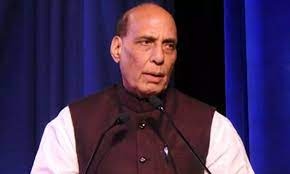Protests are prohibited by JNU within 100 meters of academic buildings
According to a new handbook from Jawaharlal Nehru University (JNU), any “anti-national” conduct would result in a Rs 10,000 punishment, while hanging wall posters and holding dharnas within 100 yards of academic buildings will result in a fine of up to Rs 20,000 or expulsion from the university.

In addition to classrooms and laboratories, the handbook lists the academic buildings of various institutions as housing the offices of chairpersons, deans, and other significant office-bearers. Previously, a High Court decision forbade rallies within 100 meters of the administrative buildings, which hold the vice-chancellor, registrar, and proctor offices, among other offices.
However, as per the updated Chief Proctor Office (CPO) handbook, demonstrations are no longer permitted within 100 meters of academic buildings, including those where courses are held.
This comes after a written “anti-national” statement on the wall of the School of Languages building at JNU in October, which prompted the administration to announce the formation of a committee to investigate the recurring pattern of similar events on campus.
The JNU Students’ Union (JNUSU) has called for the removal of the new regulations, arguing that they are an effort to quell dissent on campus. The manual’s strict guidelines are intended to stifle the dynamic campus culture that has long marked JNU.
The JNUSU has demanded that the new Chief Proctor Manual be revoked by the university administration immediately,” the students’ organization said.
Vice-Chancellor Santishree Dhulipudi Pandit or the appropriate authority may declare an act criminal under the new regulations, which were adopted by the Executive Council at a meeting on November 24. This is provided that the act violates the university’s code of conduct and discipline. Additionally, if they think it appropriate, they may decide to sustain, modify, or waive the penalty.
Any form of disparaging religious, casteist, or anti-national statements cannot be printed, distributed, or pasted on posters or pamphlets at the institution.
A fine of Rs 10,000 will be applied to any conduct that is considered “anti-national” or that promotes hatred against a group, caste, or religion. According to the CPO manual, students who are discovered to be participating in hunger strikes, dharnas, “group bargaining,” or any other type of protest within a 100-meter radius of any academic or administrative complex, or who are discovered to be blocking entrance or exit of any of these complexes, will face penalties of up to two months’ imprisonment, a fine of Rs 20,000, or rustication and declaration of out-of-bounds for a maximum of two months.
It also said that any act encouraging violence or any type of coercion, including gheraos and sit-ins, would also be penalized. These actions interfere with the university’s regular operations both academically and administratively. According to the handbook, a student will be dismissed from the institution if they have been disciplined five times or more throughout their studies.
If a student is punished for engaging in any of the banned activities and is found guilty, they will not be eligible to register for the semester and won’t get a “no-dues” certificate until the fine is paid in full.
In addition to posting the penalty on the official website, the administration will also email a copy of it to the student’s parents or legal guardian. A student may be required to do community service at JNU if they do not show up for the proctorial investigation. The committee will consider that the complaint was lodged with malicious intent.
The complainant’s false accusations against any student may also result in rustication from the institution. Additionally, the university has eliminated the cross-examination of the defendant by the complaint or the witness, which was formerly a crucial proctorial inquiry provision.
The handbook said that in the event of a disagreement over how to interpret any of these guidelines, the Vice-Chancellor’s judgment shall be final.







